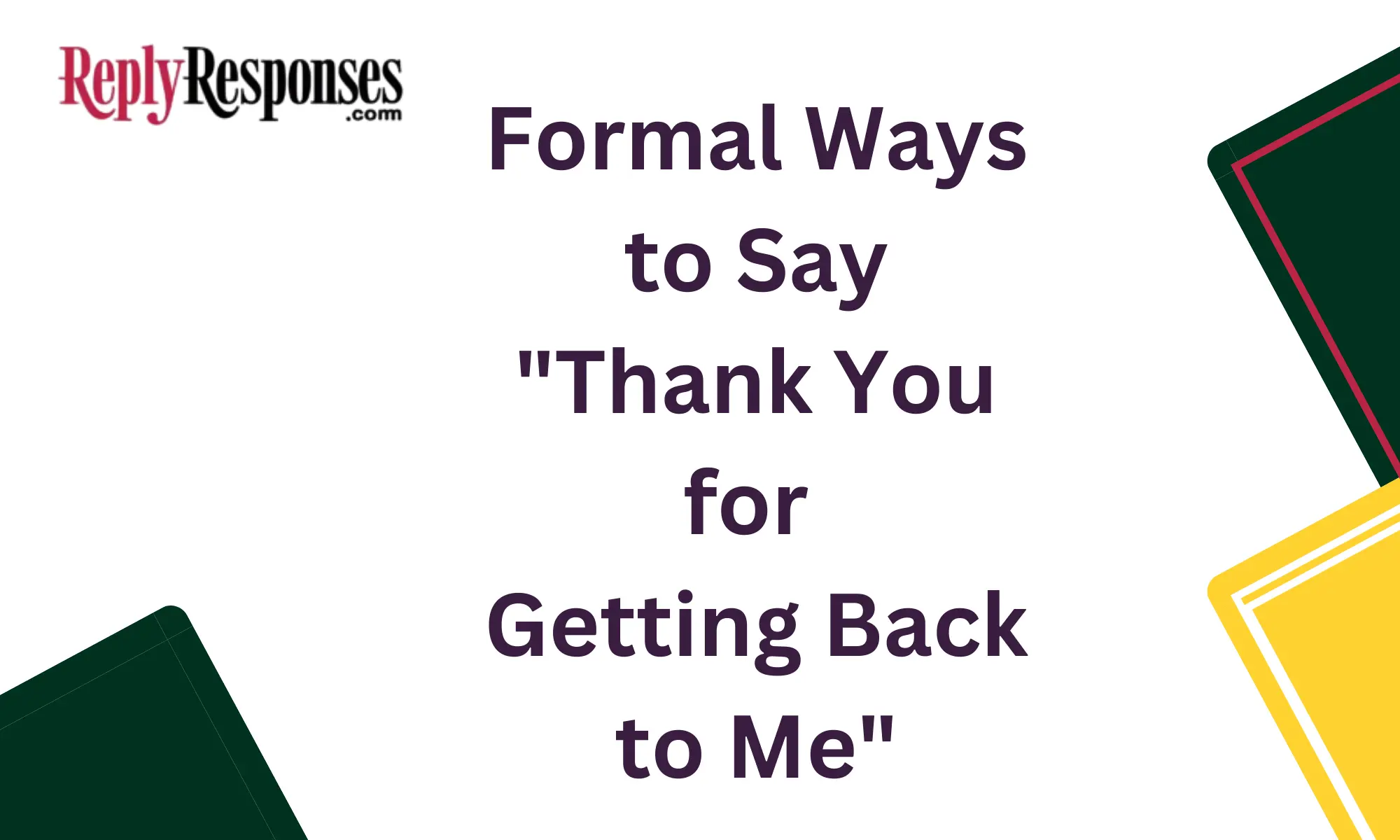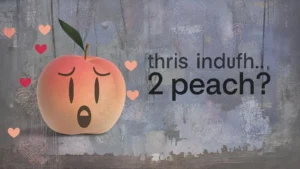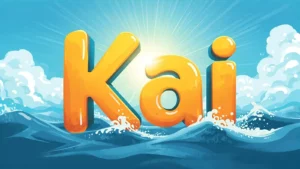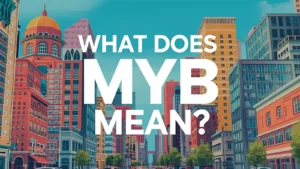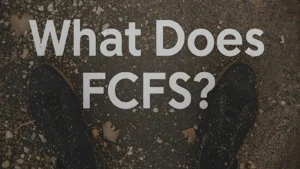When someone responds to your message, it’s important to acknowledge their effort and express your gratitude professionally. Here are some formal alternatives to saying “Thank you for getting back to me.”
“Express gratitude professionally with these polished alternatives to ‘Thank you for getting back to me.’ Perfect for emails and formal conversations!”
These responses can help maintain a positive tone in your communication.
Formal Responses to “Thank You for Getting Back to Me”
1. “I appreciate your prompt response.”
Scenario: In a professional email or conversation.
Impact: Shows gratitude and acknowledges their quick reply.
2. “Thank you for your timely response.”
Scenario: When receiving important information.
Impact: Highlights the importance of their quick reply.
3. “I’m grateful for your quick reply.”
Scenario: In a follow-up message.
Impact: Conveys appreciation for their efficiency.
4. “Thank you for your swift reply.”
Scenario: After a brief conversation.
Impact: Emphasizes their speed in responding.
5. “I appreciate you taking the time to respond.”
Scenario: In a business context.
Impact: Acknowledges their effort and time.
6. “Thank you for your response; I value your input.”
Scenario: After receiving feedback.
Impact: Shows you value their opinion.
7. “Thank you for your attention to this matter.”
Scenario: In a formal discussion.
Impact: Recognizes their engagement with the topic.
8. “I appreciate your feedback and insights.”
Scenario: When receiving advice or input.
Impact: Highlights the value of their insights.
9. “Thank you for keeping me informed.”
Scenario: In ongoing communications.
Impact: Shows appreciation for their updates.
10. “I’m grateful for your assistance.”
Scenario: When they’ve helped you with something.
Impact: Acknowledges their help positively.
11. “Thank you for your thorough response.”
Scenario: After receiving detailed information.
Impact: Recognizes their effort in providing clarity.
12. “I appreciate you getting back to me so quickly.”
Scenario: After a time-sensitive inquiry.
Impact: Conveys thanks for their promptness.
13. “Thank you for your clarity on this issue.”
Scenario: When they’ve clarified something complex.
Impact: Recognizes their ability to communicate effectively.
14. “I value your quick turnaround.”
Scenario: In a project update context.
Impact: Shows respect for their efficiency.
15. “Thank you for your timely assistance.”
Scenario: When help is provided promptly.
Impact: Acknowledges their quick support.
16. “I appreciate your willingness to respond so quickly.”
Scenario: In an urgent situation.
Impact: Highlights their commitment to communication.
17. “Thank you for your reply; it’s much appreciated.”
Scenario: After a general inquiry.
Impact: Simple and effective acknowledgment.
18. “I’m thankful for your prompt attention to this matter.”
Scenario: After a request for help.
Impact: Shows appreciation for their focus.
19. “Your quick response is greatly appreciated.”
Scenario: In a follow-up email.
Impact: Acknowledges their efficiency.
20. “Thank you for addressing my concerns.”
Scenario: When they respond to a specific issue.
Impact: Shows appreciation for their attention.
21. “I appreciate your timely follow-up.”
Scenario: In response to a follow-up email.
Impact: Acknowledges their effort in keeping the communication going.
22. “Thank you for your prompt reply; it helps a lot.”
Scenario: When you need immediate assistance.
Impact: Shows the impact of their response.
23. “Your response was very helpful; thank you!”
Scenario: After receiving useful information.
Impact: Acknowledges their help positively.
24. “I appreciate you getting back to me on this.”
Scenario: In a casual professional context.
Impact: A friendly yet professional tone.
25. “Thank you for taking the time to address my query.”
Scenario: After asking for clarification.
Impact: Acknowledges their effort thoughtfully.
26. “I’m grateful for your insights and assistance.”
Scenario: After a detailed conversation.
Impact: Highlights the value of their input.
27. “Thank you for the update; it’s appreciated.”
Scenario: When receiving new information.
Impact: Simple and effective acknowledgment.
FAQs
What are some formal alternatives to “Thank you for getting back to me”?
- Explore professional phrases for expressing gratitude in business or formal settings.
How can I professionally acknowledge a response in an email?
- Learn formal phrases to maintain a polite tone.
What should I say instead of “Thanks for the reply” in a formal context?
- Suggestions for more polished and respectful expressions.
Why is it important to use formal language in professional emails?
- Understand the impact of professional etiquette on communication.
How do I express gratitude for a delayed response professionally?
- Tactful ways to thank someone while addressing the delay.
Can I use “I appreciate your response” as a formal alternative?
- Analysis of when and how to use this phrase effectively.
What’s a concise but professional way to say “Thank you for replying”?
- Short yet respectful phrases for emails and messages.
How do I politely thank someone for providing the information I requested?
- Phrases that combine gratitude with acknowledgment of help.
What are the best practices for responding to emails in a formal tone?
- Tips on maintaining professionalism in email communication.
How can I make my gratitude sound genuine in formal messages?
- Strategies to ensure your message feels sincere and not robotic.

Welcome to ReplyResponses.com, your go-to hub for quick, witty, and meaningful replies! Whether you’re looking for clever comebacks, thoughtful answers, or just some fun conversation starters, we’ve got you covered. Our platform makes responding easier, smarter, and way more enjoyable, helping you connect, engage, and impress effortlessly.
